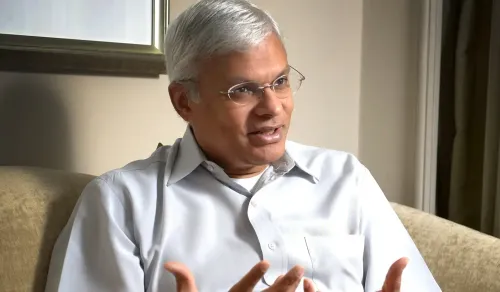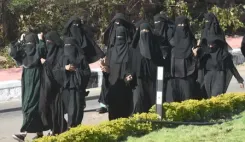Is Munir One of Pakistan's Most Unpopular Army Chiefs, Lacking Legitimacy?

Synopsis
Key Takeaways
- Asim Munir is seen as one of the most unpopular military leaders in Pakistan's history.
- The military's narrative targets ethnic groups, linking them with internal security issues.
- The judiciary and law enforcement have been transformed into tools for political oppression.
- Upcoming elections are tainted by rigging, undermining democratic legitimacy.
- Societal unrest is rising due to economic pressures and increasing alienation among youth.
Islamabad, Oct 14 (NationPress) Asim Munir, the Army Chief of Pakistan, has become one of the most disliked military leaders in the nation's contemporary history, overseeing a divided economy, restricted media, and a nation rife with polarization, as highlighted in a report released on Tuesday.
The report emphasizes that Munir's challenge lies not in governance but in a profound absence of legitimacy. Unlike his predecessors who sought the approval of civilians, his approach to politics lacks emotional appeal.
“Today, Pakistan finds itself at a critical juncture where its military leader, Field Marshal Asim Munir, appears to have resorted to the most ancient and lethal strategy in the nation’s history: the politics of division. Having exhausted external enemies to manipulate and with his legitimacy increasingly tenuous domestically, Munir has seemingly turned inwards, exploiting ethnic and regional identities to maintain his grip on power,” stated a report from the Pakistani news platform ‘Global Village Space’.
“The recent narrative from the military establishment unfairly targets Pashtuns, Afghans, and the residents of Khyber Pakhtunkhwa (KP) as the root of the problem, conveniently associating them with ‘Talibanisation’ and internal strife. The most powerful figure in the country is now framing a domestic political crisis as one of ethnicity and security, thereby splitting the populace to rationalize greater militarization of national affairs,” the report adds.
As per the report, Munir's position is particularly precarious as he intertwines political authority with institutional compliance. The judiciary, once a potential counterbalance, is now largely impotent, with judges who dare to challenge military dominance facing transfers, resignations, or silent exiles. Furthermore, law enforcement and intelligence agencies have been repurposed into tools of political oppression, detaining activists, censoring media personnel, and stifling dissent under the guise of national security.
“The upcoming 2024 elections, tainted by overt manipulation, signify the demise of electoral legitimacy. A government supported by the military cannot effectively implement policies or claim a popular mandate. Instead, it resorts to governance through decrees and detentions. Meanwhile, the media survives through self-censorship; journalists now whisper what they once declared boldly,” stated the report.
It emphasized that while the Field Marshal’s propaganda may dominate the narrative, the internal fractures within Pakistan are expanding. From Balochistan to the tribal regions, resentment is palpable. The report claims that demonstrations in Pakistan-occupied Gilgit-Baltistan, strikes in Pakistan-occupied Kashmir, and escalating unemployment throughout Punjab showcase a society unraveling under economic pressures.
“The illusion of Pakistan as a ‘fortress of Islam’ no longer motivates; it has been replaced by hunger and despair. The increasing sense of isolation, especially among the youth, is a ticking time bomb. If every dissenting voice is labeled anti-state, one day, the state may find itself with no citizens willing to defend it,” the report cautioned.









